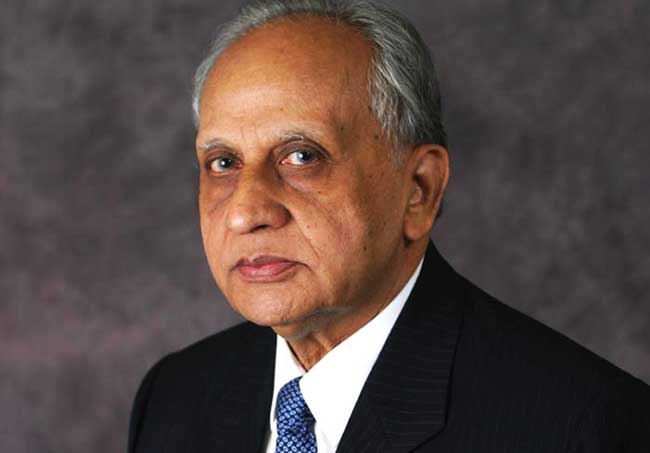Talaaq! Talaaq!! Talaaq!!!
And the divorce happens!!
Really?
Is this actually what Quran says?
Former Dean of Delhi University’s Law Faculty and former Chairman of the National Commission for Minorities Prof Tahir Mahmood is an internationally recognised expert on Muslim Law. He speaks on the system of divorce among Muslims and how maulvis and the All India Muslim Personal Law Board have thwarted reforms that could have benefited the community.
Here’s what he has to say.
“Muslim Law is viewed to be tilted against women. The most evocative symbol of this view is triple talaaq, namely, that Muslim men can divorce women by simply pronouncing talaaq three times. I reject the concept of triple talaaq, it doesn’t adhere to the correct Islamic procedure.
The law on this point is absolutely clear in the Quran. There are two verses in the Quran pertaining to talaaq. One verse says, “Divorce is only twice.” The background to this verse was the social condition prevailing in the pre-Islamic period – husbands would divorce their wives temporarily, because every divorce was revocable till the iddat period [This corresponds to roughly three months, the expiry of which leads to couples separating]. They would divorce their wives, revoke it on the last day of iddat, enjoy them for some time and again divorce. Basically, they kept playing hide and seek with wives all their lives.
To stop this devilish practice, the Quran declared that a person can revoke his divorce only once. This means if the husband divorces his wife the second time in his life, the marriage is instantly dissolved. She will not remain his wife, iddat or no iddat.
The other Quranic verse says a person can’t divorce his wife unless there is an arbitration or reconciliation process, which requires representations from both sides. The maulvis have assumed the power of deciding that the first verse is Quranic law and the other is just Quranic morality, not law. Who has authorised them to make this distinction? The Quran does not speak of law and morality. Whatever the Quran says is Quranic.
The practice of triple talaaq was there everywhere. But, other than India, it has been reformed elsewhere. Islam didn’t introduce this practice of triple talaaq. Islam, on the contrary, tried to stop this, as I have already explained. But the custom was deeply rooted and it continued thereafter.
Triple talaaq has been banned all over the Muslim world. Why should India be sticking to this 7th century law?
I have spoken to the supporters of the practice enough. I don’t want to waste my time anymore. I can’t convince the fanatics. They will remain what they are.
These people say they are not competent to understand the Quran. They say they are bound by the interpretation of the Quran by this or that Imam who lived in the first 100 years of Islam’s advent. Just as the Constitution is what the Supreme Court of India says it is, the Quran is what Imam Abu Hanifa (699-767 CE) or Imam Shaefi (767-820 CE) said it was. It doesn’t matter to them that the Quran at the outset asks the reader to go deep into its meanings and decide it for himself. Nor does it matter to them that the revered Imams cautioned people against following them blindly. Read the Quran and decide for yourself, they said. Unfortunately, we in India are going in the contrary direction.
There is a concept of divorce by mutual consent that is embedded in modern law. The policy behind [it] is that if both the husband and wife want to divorce through mutual consent, the court isn’t allowed to probe their decision. Similarly, Prophet Mohammad wanted couples who thought their marriage had broken beyond repair to walk away from it, either together or alone, by following the prescribed procedure. This procedure is separate for men and women, and there is also one by which couples can divorce through mutual consent. Prophet Mohammad didn’t want such couples to go to court.
Under Islamic law, it is possible for couples to stipulate in the marriage agreement that the wife shall have the right to dissolve the marriage by her own action and it is called contractual divorce.
Wives have equal rights through khula, which is the counterpart of talaaq by men. Khula is the divorce at the behest of women. She can tell her husband that she does not want to live with him. The husband can’t even ask her why. Khula is her decision. So if the husband agrees to give divorce, it is well and good. The only thing he can ask for is that he wouldn’t pay her mehr or dower. It is possible the husband might not listen to her and agree to divorce her. In that case, the woman can go to the qazi to have khula enforced.
But muftis say that if the husband doesn’t agree to divorce her, then the wife has to stay with him, which is absolute rubbish! The law has already been interpreted by the Supreme Court of Pakistan that in khula the decisive voice is that of the wife.
A woman’s right to divorce are almost equal to that of the man in Islamic In fact, the wife has more powers than the husband, who can divorce through the process of talaaq only. The wife has khula, contractual divorce, and, on top of it, the power of faskh, by which she can approach the court for divorce on a ground or allegation and prove it. These grounds have been codified in India, through the Dissolution of Muslim Marriages Act, 1939. In contrast to faskh, khula is unilateral.
But, we are unable to get out of this triple talaaq rut! as long as we have the minority syndrome. Bangladesh has 12% Hindu population, but Hindu Law there remains where it was on August 15, 1947. By contrast, Muslim Law has undergone changes in Bangladesh and Pakistan. In the subcontinent there is a minority syndrome, which is deepest here in India. The hold of maulvis over the community is so strong that there is absolutely no scope for reform of Muslim Law in any foreseeable future in India. For any reform, we will have to look at the judiciary, which has been introducing it through a circuitous way. The judiciary is the only hope.
Frankly, I want the All India Muslim Personal Law Board to be abolished. Its members are paranoid and they speak rubbish. Every time the Supreme Court delivers a judgement, the Board members say it is interfering with Shariat. They are doing disservice to the community. They have succeeded in making the community believe that Muslim Personal Law means the Quran and that there is no difference between the two, and that both are divine.”
Well, Prof. Mahmood has a point there and his statements are quite relevant to the current state of law and regulations pertaining to the Marriage Acts in Muslim Society.
Is there a hope for change?
Are we going to get rid of primitive mindsets and see the holy books as “Quran” in a newer sensible light?
Are these so called keeper of the religion “the maulvis” ever going to let people breathe a fear-free air?
If you have answers, please do share with us.






